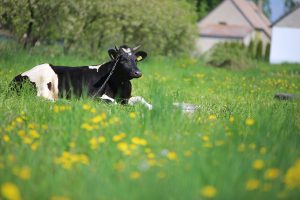Lamb and beef produced on an environmentally-friendly small scale.
“By supporting your local farms you can do your bit for the environment and for local jobs too.”
.
We need to talk about how our meat is produced:
The debate over meat… and ethical farming in Sidbury – Vision Group for Sidmouth
And its effect on the environment:
UK agricultural methane is not contributing to global warming – Vision Group for Sidmouth
.
Some months ago, Andy Bragg of West Town Farm, an organic farm located 3 miles outside of Exeter, responded to a BBC programme:
BBC One – Meat: A Threat to Our Planet?
.
 Meat – A threat to our planet (BBC Programme)
Meat – A threat to our planet (BBC Programme)
As a farmer passionate about looking after my animals and the land to the highest of standards. this programme was a difficult one to handle. Most of the messages from the programme were I believe true. We as humans on this planet have caused serious consequences from producing meat in what are basically factory farms; not only to the climate but also to our soils, forests and wildlife. Although we have some farms, like that shown in the film, in the UK the vast majority of our red meat in this country comes from pastures on the western side of the UK based on a diet of grass. This is NOT what was in the film. Most, if not all, of the farms shown were factory farms using vast amounts of soya from Brazil and Argentina or were from farms in Brazil where the rainforest had been cut down simply to graze cattle.
At West Town Farm, the staff and me are very proud of the way we farm.
Meat- A threat to our planet (BBC Programme) | westtownfarm.co.uk
.
In fact, there’s a lot of interest in lamb and beef from Devon:
A meat feast with meals anyone can make – South London News
.
Especially in environmentally-friendly meat:
Farmers Guardian – Net Zero – Articles – Producing carbon neutral beef
.
And, despite the uncertain future over Brexit, there are livestock farmers who are not fearful, even in the more difficult parts of the county with this piece from The Moorlander earlier this week:
.
A very British farming revolution: Challacombe Farm
Currently, most Dartmoor farmers are reliant on subsidy payments for a large proportion of their income and so will need to adapt to remain economically viable. But there are those that call our Moor their home who are not fearful of the changes that are to come to their livelihood. In fact, they are embracing this ‘once in a generation’ shift in policy.
“Challacombe Farm in many ways is a traditional Dartmoor farm that is nestled in a valley south of the Warren House Inn and we are taking on the challenge head-on and with a positive outlook” said Mark Owen, one of the current tenants.”… Like most Dartmoor farms, they keep sheep and cattle, but these are not just to produce meat, instead their primary role is to help manage the farm’s wildlife habitats and archaeology by grazing. “Cattle, sheep and ponies all graze in different ways, and by moving them around the farm at specific times of year, we maintain a mosaic of habitats required by different species of flowers, insects and birds.”
Their Welsh Black and North Devon cattle are hardy native breeds which graze with a ripping action that does an essential job of grazing the boggy rhos pasture found in the valley bottoms. In the summer they are full of orchids, marsh fritillary butterflies and other rare insects and flowers…
A very British farming revolution: Challacombe Farm – The Moorlander